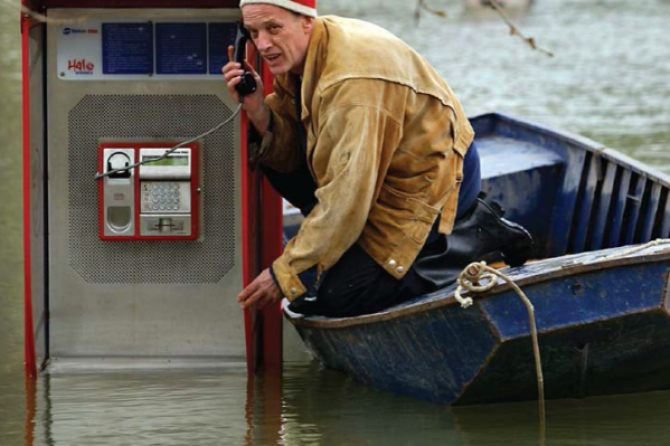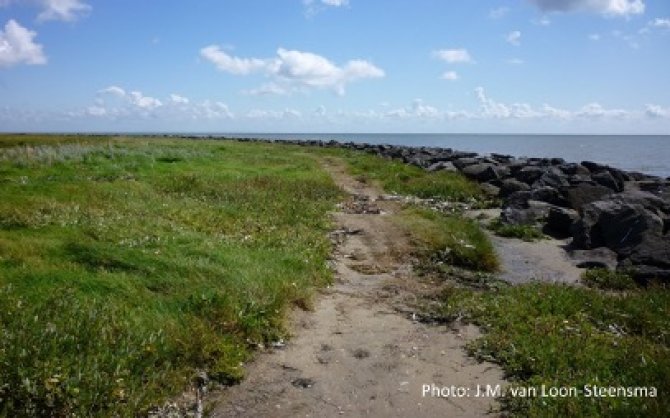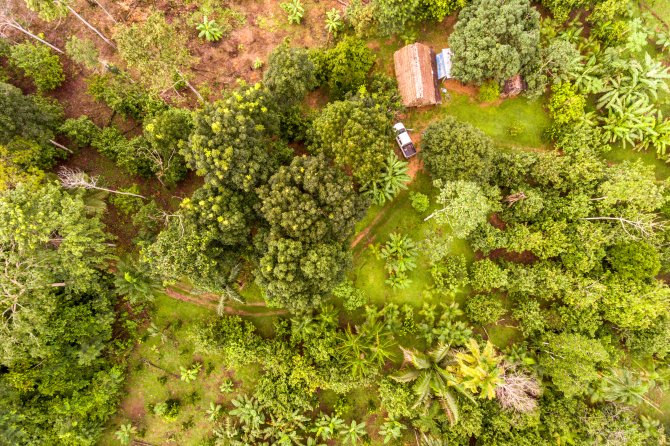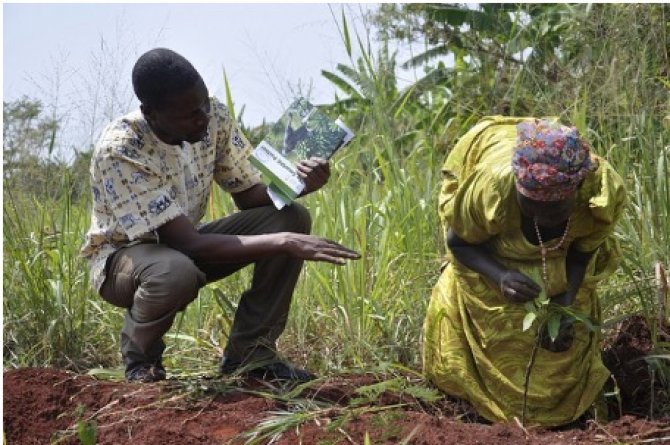
Adaptation
What is it about?
In the Adaptation research theme we analyse, assess and design strategies and plans to cope with impacts of global change. Our research covers dynamics in long term planning (adaptation turning points, adaptation pathways), innovations in coastal management (nature-based, multifunctional flood defences, building with nature), monitoring and analysis of real-life experiments (climate proofing of catchments) and development of hydro- and meteorological information services.
Research sub-themes
Adaptation Pathways

Climate change and socio-economic developments are inextricably accompanied by a high degree of complexity and uncertainty. To plan for uncertain future conditions requires the ability to adapt to sudden changes. Adaptation pathways are a way to achieve this: a promising decision-focused approach which incorporates flexibility into decision-making by planning for multiple possible futures.
Projects
- Lumbricus: The knowledge programme for a climate-robust soil and water system
- KLIMAP: Climate adaptation in practice
- CASTOR: Catchment Strategies Towards Resilience
PhD Research
- Assessing the potential of land restoration in delivering climate change adaptation in Senegal
- Effective Policy Strategies and Instruments for Transforming Food Systems towards Healthier Diets
- Sustainable food system transitions in Vietnam
- Co-creating sustainable futures for the sandy soils landscapes in the Netherlands
Publications
-
Advancing climate resilient development pathways since the IPCC's fifth assessment report
Environmental Science and Policy (2021), Volume: 126 - ISSN 1462-9011 - p. 168-176. -
Adaptation pathways : A review of approaches and a learning framework
Environmental Science and Policy (2021), Volume: 116 - ISSN 1462-9011 - p. 266-275. -
No warning for slow transitions
Journal of the Royal Society, Interface (2021), Volume: 18, Issue: 176 - ISSN 1742-5689 - p. 20200935-20200935. -
Thresholds, tipping and turning points for sustainability under climate change
Current Opinion in Environmental Sustainability (2013), Volume: 5, Issue: 3-4 - ISSN 1877-3435 - p. 334-340.
Nature Based Adaptation

This sub-theme explores the potential of nature and natural processes for adaptation, and in particular on adaptation of flood defences. Interesting issues are the long-term performance of such nature-based adaptations in a changing climate, the balance between co-benefits and trade-offs, and the implications for management and policy development. This requires an interdisciplinary systems approach.
Projects
- NWO Living Labs in the Dutch Delta
- PICS Coastal Adaptation: Living with Water
- EU H2020 Green Deal: Rest-Coast
- EU H2020 Green Deal: WaterLANDS
PhD Research
- Connecting wide green dikes and vegetated foreshores in managed realignment
- Nature based coastal adaptation
Publications
-
The application of an environmental performance framework for climate adaptation innovations on two nature-based adaptations
-
Flood risk reduction by parallel flood defences – Case-study of a coastal multifunctional flood protection zone
-
How natural processes contribute to flood protection - A sustainable adaptation scheme for a wide green dike
-
Monitoring Impact of Salt-Marsh Vegetation Characteristics on Sedimentation : an Outlook for Nature-Based Flood Protection
-
Weerbare Waddenkust. Aanzet tot een conceptueel raamwerk en beslisregels voor een lange termijn handelingsperspectief waterveiligheid en landgebruik bij extreme zeespiegelstijging.
-
Versterking Grebbedijk als voorbeeld van participatie volgens de Omgevingswet
-
How “wide green dikes” were reintroduced in The Netherlands: a case study of the uptake of an innovative measure in long-term strategic delta planning
-
Re-evaluating safety risks of multifunctional dikes with a probabilistic risk framework
Climate Smart Agriculture

Agriculture contributes significantly to global warming through large scale GHG. At the same time agriculture systems are vulnerable to climate change. Climate-smart agriculture aims to address the interlinked challenges of food security and climate change through an integrated approach, focusing on: (1) sustainable increase of agricultural production (2) adaptation of food security systems to climate change; and (3) reducing GHG from agriculture.
Projects
- RECSA - Climate Smart Agriculture for a Resilient Coastal Bangladesh
- SustainIndus - Targeting water and food security interactions in a climate change hotspot
- AgMIP - The Agricultural Model Intercomparison and Improvement Project
PhD Research
- Farmer Friendly Climate Information Services for Climate Smart Rice Disease Management in Coastal Bangladesh
- Agricultural Green Development Pathways for food and water in China
Publications
Climate Services

Multiple sectors are increasingly aware how vulnerable our society is to the impacts of climate change. Following the rapid increase of monitoring of climate data there is a need to transform these into climate information services. This includes ICT-tools, relevant products and aligned services such capacity building, education and networking to benefit society at all scales. To achieve that, the human component needs also to be taken into account to deliver research-based, tailor-made water & climate information services.
Projects
- ML-CLIMATE - iMproving cLimate information serviCes for sustainabLe agrIculture by integrating scientific and indigenous forecasts using Machine leArning TEchniques
- WATERAPPscale - upscaling WATERAPPS information services for sustainable food production in peri-urban delta areas in Bangladesh
- WAGRINNOVA - Co-innovations across scales to enhance sustainable intensification in water-managed agricultural systems in West Africa
- UNCHAIN - Unpacking climate impact CHAINs. A new generation of action- and user-oriented climate change risk assessments
- RECSA - Climate Smart Agriculture for a Resilient Coastal Bangladesh
PhD Research
- Farmer Friendly Climate Information Services for Climate Smart Rice Disease Management in Coastal Bangladesh
- Developing Climate Adaptation Services: what works when and why?
Publications
-
Are farmers willing to pay for participatory climate information services? Insights from a case study in peri-urban Khulna, Bangladesh
-
Assessing design principles for climate services training courses: educational design principles assessment of six C3S Blended Training courses within the Copernicus Climate Change Service
-
Co-producing climate information services with smallholder farmers in the Lower Bengal Delta : How forecast visualization and communication support farmers’ decision-making
-
Harnessing local forecasting knowledge on weather and climate in Ghana : Documentation, skills, and integration with scientific forecasting knowledge
-
Verification of weather and seasonal forecast information concerning the peri-urban farmers’ needs in the lower ganges delta in bangladesh
-
Hydroclimatic information needs of smallholder farmers in the lower Bengal delta, Bangladesh
-
Coproducing weather forecast information with and for smallholder farmers in Ghana : Evaluation and design principles
-
Bridging science and society : Tailor-made hydroclimatic information service with farmers in Lower Bengal Delta, Bangladesh
-
Holistic quality assessment of ECMWF System-4 seasonal climate forecast to support crop production
-
Role of information in farmers' response toweather and water related stresses in the lower Bengal Delta, Bangladesh